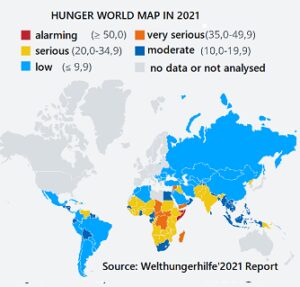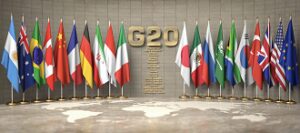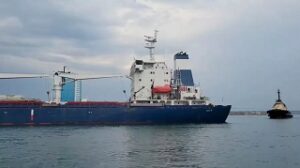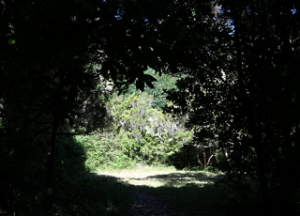
Arquivo para a ‘Jornalismo’ Categoria
The gap between rich and poor
The most varied studies, we commented on some in this week’s posts, point to a practically stable separation between rich and poor when not growing in some countries, this model can never guarantee sustainable social human development, wars and pandemics increase this gap even more.
posts, point to a practically stable separation between rich and poor when not growing in some countries, this model can never guarantee sustainable social human development, wars and pandemics increase this gap even more.
The most serious problem that is extreme poverty, we have already analyzed and published in February this year an analysis of global poverty, and also, in another post, the social problem after covid 19.
The sustainability of human economic and social development depends not only on increasing wealth and social production, it is necessary to find a balance where both social mobility of classes and ethnic mobility provide sustainability and overcome inequalities.
The problem of sustainability is not secondary, many models distribute wealth but impoverish the country as a whole, this is because the investment aspects and safer strategies of economic models are only thought of around income distribution, the opposite where there is only an increase without distribution is less sustainable.
For this model, the biblical parable of Lazarus and the Rich man, the poor man who lived on the margins and when the rich see himself condemned, here the parable is valid both personally and socially, asks that he be allowed to warn his relatives of this risk, but says the biblical prophets already said and you didn’t listen, how many people and political actions have already denounced the serious social gap.
For those who don’t know, the biblical parable says (Lk 16:19-24): “At that time, Jesus said to the Pharisees: 19 “There was a rich man, who dressed in fine and elegant clothes and held splendid parties every day. A poor man named Lazarus, full of wounds, was on the ground, at the rich man’s door. He wanted to satisfy his hunger with the leftovers that fell from the rich man’s table. And besides, the dogs came to lick their wounds. When the poor man died, the angels took him to Abraham. The rich man also died and was buried. In the region of the dead, in the midst of torments, the rich man lifted up his eyes and saw Abraham from afar, with Lazarus by his side. Then he cried out, ‘Father Abraham, have mercy on me! Tell Lazarus to wet the tip of his finger to cool my tongue, because I suffer a lot in these flames”.
The rich man also asked to warn the living relatives, and he was reminded that they had (and have) the prophets.
End of the pandemic in sight
This was the statement of WHO´s Director General Tedros Adhanom on September 14, last Wednesday, but then he asked that the pandemic continue to be monitored.
on September 14, last Wednesday, but then he asked that the pandemic continue to be monitored.
Consultant Sylvia Lemos from the Brazilian Society of Infectious Diseases also told CNN: “It is something that encourages the prospect that something may be ending the end of the pandemic, but it does not mean that the world is free of surprises”, and she also asks for caution. stating that “more sustainable data is still needed”.
The protocols are that in general the use of masks is optional, but hygiene and ventilation care are not expendable, also environments where the use of mask is imperative, as there are still sanitary environments such as hospitals and places of greater danger. .
According to the infectologist, in addition to the fact that every viral infection is cyclic, the last strain must also have lost strength and not have new stronger variants, and it is obvious that vaccination helped.
The country has the lowest rates since 2020, and the downward trend in deaths and cases remains.
It is necessary to understand how the infectious disease specialist reminds us that the action of the virus “does not end” and that science will dictate the new measures to be taken from now on, such as whether there will be annual vaccinations and the prevention of risk groups.
Unless new facts occur, our weekly monitoring of the pandemic will be more sporadic.
The freedom of the market against the market
One of the main drivers of the current crisis whose war is a consequence rather than a cause is the so-called market crisis, several products face barriers of price control attempts against the high demand of commodities: gas, oil, iron and even silicon ( not the sand of course, but the manufactured producers).
rather than a cause is the so-called market crisis, several products face barriers of price control attempts against the high demand of commodities: gas, oil, iron and even silicon ( not the sand of course, but the manufactured producers).
So while the European Union discusses controlling the price of gas, it tries to increase the stock due to the war in Ukraine, since Russia is the main supplier, which is contradictory because more is bought to keep the stock with the winter in sight. (November), the cost must increase and so it is not possible to control prices.
Also the total shutdown of the largest nuclear plant in Europe, the Zaporizhzhia, which is being shut down, could further exacerbate the energy crisis, Russia continues to point out the dangers of weapons and bombings from Kiev to the region, which could lead to catastrophic consequences,
China’s crisis with Taiwan also hides a market crisis, on the one hand the power of the rebel island in the production of silicon chips, and on the other an internal crisis aggravated by the bankruptcy of Evergrande, the country’s largest construction company, which was private and now it will be nationalized in an attempt to contain the crisis.
Thus communist China also knows the perverse effect of the market.
The Chinese real estate giant failed to deliver the debt restructuring plan as promised until July 31 and since then the Chinese government, in addition to discovering the evils of capitalism, also resorts to nationalization to avoid a more serious failure, those of the banks that financed the default.
The company stopped paying the bonds in dollars in December last year, according to estimates released by CNN, the amounts will reach 300 billion dollars in liabilities, which generates a wave of lack of credit in companies that operate in the Chinese real estate market.
The sector is responsible for almost ¼ of the Chinese GDP, and the activity that most contributed to the recent growth of the economy there, is now facing a strong slowdown that also worries the western market, which has made many new investments in this market.
Dependence on Russian gas (graphic) can seriously affect the world economy, for example, even the UK being independent is already affected.
Energy crisis and tension in the east
Moscow’s retaliation to the sanctions imposed after the invasion of Ukraine, begin to have an impact on the European economy and in the United Kingdom caused the resignation of Prime Minister Boris Johnson, although the problem is wider than inflation, which in 2023 could go even above 20. %, the main impulse is the rise of natural gas throughout Europe, Russia blames Germany for the crisis.
of Ukraine, begin to have an impact on the European economy and in the United Kingdom caused the resignation of Prime Minister Boris Johnson, although the problem is wider than inflation, which in 2023 could go even above 20. %, the main impulse is the rise of natural gas throughout Europe, Russia blames Germany for the crisis.
European Union countries are looking to stock up on natural gas for the coming winter period.
Prime Minister Liz (Elizabeth) Truss was sworn in, in an internal election of the Conservative party against former Treasury Minister Rishi Sunak, she is known for being a chameleon, adopting speech according to the context, in fact similar to many leaders today.
It was against, for example, Brexit and after it was adopted it became in favor.
The people of Taiwan watching the Ukrainian war always quoted in local news, are aware of a possible war with China, and prepare for possible crises with exercises, first aid training and logistics to avoid bombings.
Last week a drone was shot down traveling in Taiwanese territory, according to news from Deustche Welle, reproduced on the G1 portal, since March an NGO called the Forward Alliance, in addition to offering civil defense training, seeks to improve national resilience.
According to Enoch Wu, founder of the Forward Alliance: “The objective is to keep communities functioning, and the trainings help prepare citizens against natural or man-made crises”, but the backdrop is a possible war with China.
Tensions rise between China and the US due to the announcement of the sale of 1.3 billion dollars of weapons to Taiwan, China promises to respond to what it considers “destruction of peace”.
It may be a deception, but the main trainings that the Taiwanese prime minister participates in are on the island of Penghu (Fishers), it is small and although it has a defense structure, it is isolated and far from Formosa Island, which is in fact the territory of Taiwan.
The war grows
While the war in Ukraine continues, now with tension points in the Crimea annexed by the Russians, China continues with “exercises” close to the island of Taiwan. This Sunday (21/08) 12 aircraft and five ships were sighted, with 5 planes crossing the median line of the Taiwan Strait.
Crimea annexed by the Russians, China continues with “exercises” close to the island of Taiwan. This Sunday (21/08) 12 aircraft and five ships were sighted, with 5 planes crossing the median line of the Taiwan Strait.
The war escalates into violence with the death of the daughter Darya of Russian ideologue Alexandr Dugin, who makes a philosophical mix of Lenin, Stalin with Nietzsche, Weber Heidegger and others, an authentic philosophical Russian salad. Darya’s car exploded and caught fire killing her in the blaze.
In the last few hours Ukraine has attacked the Russian administrative headquarters in Donesk and Russian ships in Crimea, the war is now total there and the capital Kiev can be attacked again.
In a statement yesterday (22/08), China reacted to the speech of the American ambassador Nicholas Burns, who accuses it of being “manufacturing crises”, saying that the US practiced “an empty rhetoric, and a hegemonic logic” and the temperature between the two richest and most militarily strong nations is rising.
The rapprochement between Russia and China is increasing, and the American government sees this as a strong threat, since it creates two major conflict fronts and in different parts of the planet, the danger of a war of unimaginable proportions grows.
One hope would be the meeting of the G20, a group of the 20 richest nations, in which the USA, Japan, Germany, Russia, China, the European Union, the United Kingdom, Japan, South Korea, South Africa, Brazil, Argentina, Mexico, Australia, Canada, Saudi Arabia, Turkey and Indonesia, where it will be the 37th. G20 meeting in Bali.
The date of November 15th and 16th, however, is very distant and tensions are emergency, the UN has not made progress in the negotiations between Russia and Ukraine, in a highly polarized world, there is a lack of reliable interlocutors in conflict environments.
It is no exaggeration to say that we are on orange alert, approaching red due to the threats and rhetoric of the great nations of the planet.
There is always hope, in many cases in history there is an inflection point where the curve reverses its trend, in this each a tendency towards peace.
People who resisted empires
The great Persian empire expanded from Cyrus the Great in the year 558 BC, and dominated the Medes and took all of Mesopotamia, Cyrus respected the culture and customs of his enemies, but expanded his empire to Egypt, and advanced over the Greeks, but was defeated by Athens.
year 558 BC, and dominated the Medes and took all of Mesopotamia, Cyrus respected the culture and customs of his enemies, but expanded his empire to Egypt, and advanced over the Greeks, but was defeated by Athens.
After Darius I, Xerxes I and his son Artaxerxes also tried to conquer Greece and failed, in the year 332 BC. Emperor Alexander of Macedonia the Great organized an invincible army and ended up taking Greece and eventually winning the Persians, establishing a new empire, Macedonian.
Alexander’s death from typhoid fever or malaria (the poisoning hypothesis is not accepted by historians) the dispute between generals ended up weakening the empire and starting a decline.
The period established between the starting point of the Classical Era is pointed out with the first record of the poetry of the Greek Homer, in the 7th-8th centuries BC. and will extend to the period from 300 to 600 A.D. which is called Late Antiquity, when the Middle Ages begin.
In this interregnum between the Macedonian Empire and the Roman/Byzantine Empire, Greek culture developed in classical antiquity, which is deeply influential to this day with the so-called Western culture.
Greek culture and language were for that time what the English language is today, great developments were made from Socrates, Plato and Aristotle, names in several areas of knowledge stood out: Hippocrates in medicine, Aeschylus, Sophocles and Euripides in theater , Apelles in painting, Phidias in sculpture, Archimedes in mathematics, Aristarchus, Erastothenes and Hipparchus in astronomy, are some important names that still influence our culture today.
This small nation was a great founder of concepts and thoughts that reached our days: the Organon and the Ethics of Aristotle, the Geometry of Euclid and Thales of Miletus and Pythagoras in mathematics.
They won battles uniting the city-states, but they were a small people with a strong culture and humanistic values that are remembered to this day, although they can be modified and updated.
War: current affairs and possible scenarios
The release of a grain ship from Ukraine is an important symbolic factor, although Ukraine bombed Russia’s HQ in Crimea while Russia killed Oleksly Vadatursky, founder and owner of one of Ukraine’s largest agricultural companies.
factor, although Ukraine bombed Russia’s HQ in Crimea while Russia killed Oleksly Vadatursky, founder and owner of one of Ukraine’s largest agricultural companies.
The symbolism is important and it is a relief because the confiscation of grain could cause a cascading price surge that would affect the price of food around the world.
The war, however, is far from having an announcement of peace and denunciations of atrocities by Ukraine (a video of the castration of a Ukrainian soldier by Russians was removed from twitter) and Russia, which protested the attack on the Crimea HQ.
There is controversy among experts about the future of 20% of Ukraine’s territory that is already occupied by Russia, most consider it impossible to retake these areas without civilian deaths and this would be a turning point for Ukraine in its narrative of placing Russia as ruthless and cruel.
In the middle of European summer, the European Union achieves a 15% reduction in gas consumption, to try to guarantee a stock for the winter, but Russia’s dependents will be more vulnerable from the end of October, the gas pipelines are simpler than the transport of liquefied gas which even makes it more expensive, in Germany, for example, the demand is great.
In the most worrying future scenario, the 10th will start again. Review Conference on the Non-Proliferation of Nuclear Weapons Agreement, yesterday Biden made a statement hoping that there would be “good faith” to carry out the agreement, clarifying that even in the cold war there was never a rupture of talks and the scenario of the war now worries more deep.
According to May 2019 data from the World Nuclear Association (WNA), there are 447 nuclear reactors in operation in the world and they are in 30 countries, each of which is also a nuclear hazard, either by disaster. natural as in Fukushima in March 2011, or due to operating errors like Chernobyl in April 1986.
It is worth remembering that each plant is also a potential bomb and could be bombed in a war, it is likely that the new nuclear agreement will include this aspect.
Between the clearing and the dark
There must be effective forces fighting for peace, unfortunately a good part of the western media is polarized and is incapable of making a sensible reflection on the horrors and folly of war, not because of ignorance of its effects, the two wars have already shown, but because of of childish and fanatical behavior on both sides.
part of the western media is polarized and is incapable of making a sensible reflection on the horrors and folly of war, not because of ignorance of its effects, the two wars have already shown, but because of of childish and fanatical behavior on both sides.
The threat of closing embassies in Russia, the missiles already fired in North Korea, the war that is increasingly bloody in Ukraine, with heavier and more lethal weapons, is heightened by the media that goes Between the clearing and the dark
About embassies, US Secretary of State Antony Blinken made a joke (in bad taste in my view) of dedicating the song “We are Never Ever Getting Back Together”, by Taylor Swift, to Putin, meaning that they will never be completely separated. .
It is clear that Russia has turned to Eastern Europe and dreams of an enlarged Russian federation, while China has never stopped dreaming of Taiwan’s recovery, and North Korea can be another piece in this war that advances with “care” , but it seems to have a dark purpose.
The clearing, in the context in which it was developed by Heidegger, means an opening in the middle of the forest, in the middle of the darkness, where being must emerge, and what is appropriate for modernity is also appropriate for a moment of a world war seen in a horizon, because it is opposed to beings, economic, social and even political materialities, thus appears Being, life and its logic, its “lebenswelt”, as Husserl would say.
There is a shadow, or a darkness that runs through the minds of humanity, war does not seem to be what it is: a serious civilizational danger, the end of arguments and dialogues, the denial of the Other as a Being, of its culture and its options and convictions, and this is darkness.
The biblical reading says: if the salt becomes tasteless, with what will we salt it? It will be of no use to anything else, but to be thrown away and trampled underfoot by men (Mt 5:13), there must be light and wisdom.
Peace is always possible and desirable if we have tolerance and understanding with the Other.
The Mapuche, ontology and peace
One of the most resilient native peoples of the colonization of the Americas is the Mapuche people, there are more than a million people who study in the south of Chile and Argentina, and find themselves once again betrayed by governments that promise freedom to live as a nation and be respected.
Americas is the Mapuche people, there are more than a million people who study in the south of Chile and Argentina, and find themselves once again betrayed by governments that promise freedom to live as a nation and be respected.
But the truest interpretation, which refers to a kind of original ontology, is Mapúmche, which means all beings that inhabit the cosmos: living beings, trees, stones, water, wind, etc. it is likely that the arrival of the Spaniards reduced the word to Mapuche, which simply means peoples of the land.
I read with sadness that the new Boric government, which promised in a campaign to suspend restrictive measures in the region that receives the colonized name of “La Araucanía” (name given by the Spanish colonizers) has returned to be militarized because of claims to indigenous lands.
The Minister of the Interior, Izkia Siches, said when sending soldiers to the region: “We decided to make use of all the tools to provide security” to the region and the long saga of the Mapuche continues.
The Mapuche have always known that language unifies them, Western ontology says that language is the abode of being, and they rejected the name Araucanos, which resembles the Araucaria and transforms them into aboriginal peoples, also the exotic idea that Mapuche would be derived from the Greek, of a historian Kilapan Lonko, who wrote “El origen greco de los Araucanos”, a falsification of history.
Many Mapuche words entered the Chilean language, choclo (corn), huacho (illegitimate child), laucha (small mouse), quiltro (dog), ruca (house), etc. and a popular interpretation of mapuche is mapu (land), che (people in the sense of people), thus several places and cities in chile have the prefix hue: Carahue, Colhue, Pencahue and others.
The extract from the documentary “Los Araucanos”, entitled “Mapuches: idioma o mirror da alma” from 1978, which mistakenly calls them Araucanian peoples, shows the importance of the language that the Mapuche have always had, which refers to the ontology of the native peoples.
The historian and professor at the University of Chile, the Mapuche Rodrigo Huenchún, also explains that culture has been increasingly appropriated as a political manifestation since the Pinochet dictatorship. Elisa Loncon and many others.
The recognition of the culture of peoples, if its original roots are at the root of true peace, this is the drama of modern man, of forgetting being, his experiences and his roots.
The war, Brazil and Finland
As the war escalates in Eastern Europe, Russian objectives become clear, greater control over the sources of energy and material available for war, this includes the Azovstal Steel Mill, where there are civilians and the battle has intensified.
clear, greater control over the sources of energy and material available for war, this includes the Azovstal Steel Mill, where there are civilians and the battle has intensified.
There is the alleged deception of saying that the east would make an overland corridor to the Crimea annexed in the 2014 war, but this was never a problem for Russia because of its air fleet, and it has another exclave which is Kaliningrad, and it is also That’s why Ukraine started bombing Russian oil depots.
Vargas’ dictatorial Brazilian government even flirted with Nazism, but in July 1939, on a US visit to the Chief of Staff of the Brazilian Army, General Góes Monteiro, the US government promised to cooperate with Brazil’s military and economic re-equipment. in the construction of Companhia Siderúrgica Nacional (the former CSN).
At the time, Brazil was given a credit of 17 million dollars with Eximbark, and an American base was installed in Rio Grande do Norte, strategic for military flights to Europe.
Before this period, Finland also had heavy industries that could help in the war, Sweden also had and provided material for both Germany and the allies, but in 1939 Stalin, then president of the Soviet Union, decides to invade Finland.
Finland’s parliament is deciding now to join NATO, and Russia threatens retaliation, last week Maria Zarakhova, spokeswoman for Russia’s Ministry of Foreign Affairs said: “We have given our warnings, both publicly and through bilateral channels. ; they (both countries) know that, so there are no surprises. They have been informed about everything, about what (an eventual NATO membership) will entail”.
This causes a new escalation in the war and also involves Sweden that wants to join NATO.
The clash between Russians and Finland, which began on November 30, 1939, called the Winter War (photo), although with an army and smaller power, the Finns resisted the war and maintained the morale of the troop, the pact had just been made. the Molotov-Ribbentrop pact (ministers of Russia and Germany, respectively), where Finland would remain neutral, but would lose part of its territory, a good part of its industrial park and pledged to maintain neutrality in the war, but Russia broke with the Germany and invaded Finland.
The peace treaty was signed on March 12, 1940, ceding 10% of Finnish territory to Russia and 20% of its industrial capacity to the Soviet Union.
More military might and war industries mean that there is no end to the war, greater NATO involvement means that global escalation is approaching, but hope for peace remains through increasingly difficult agreements.

